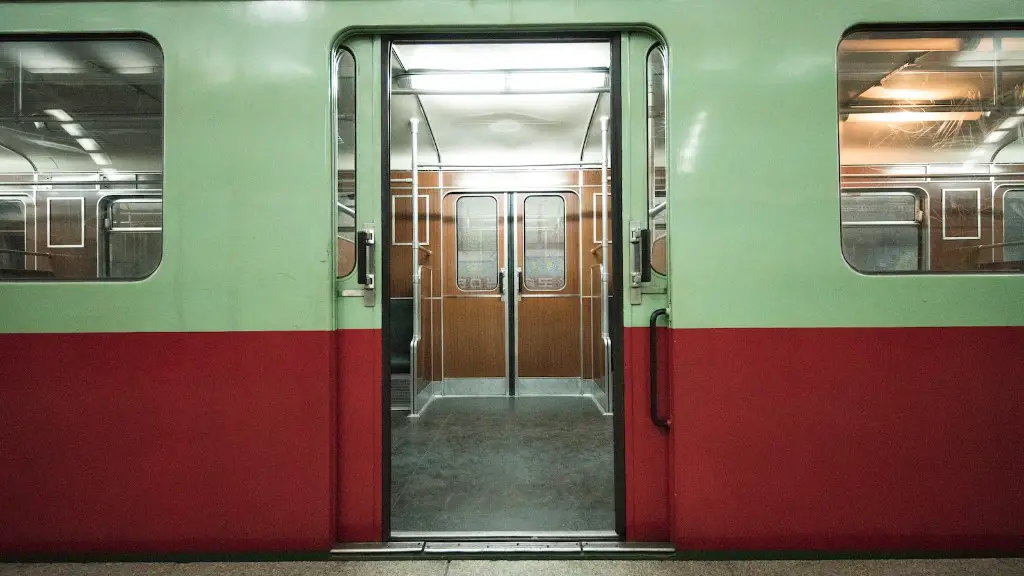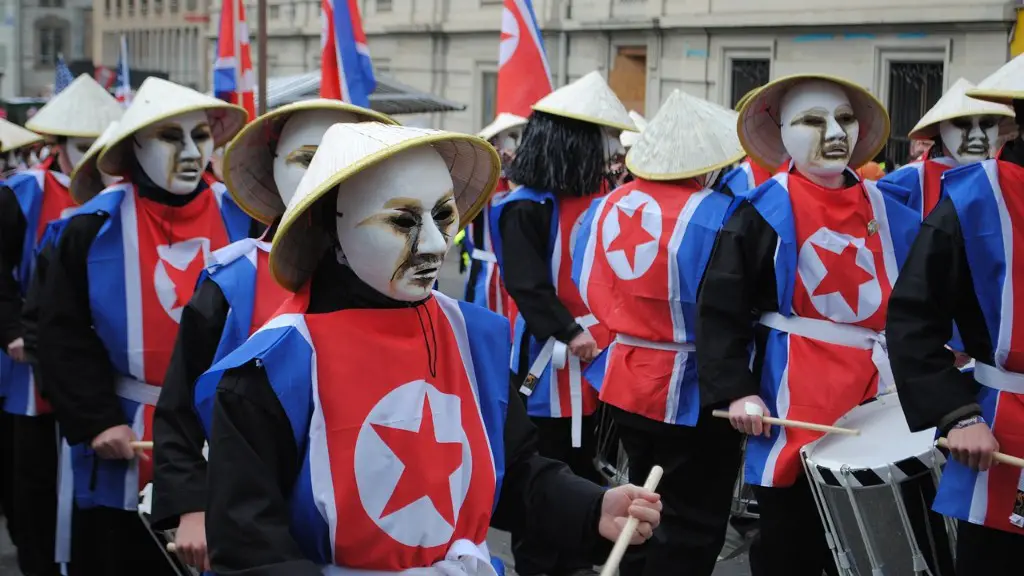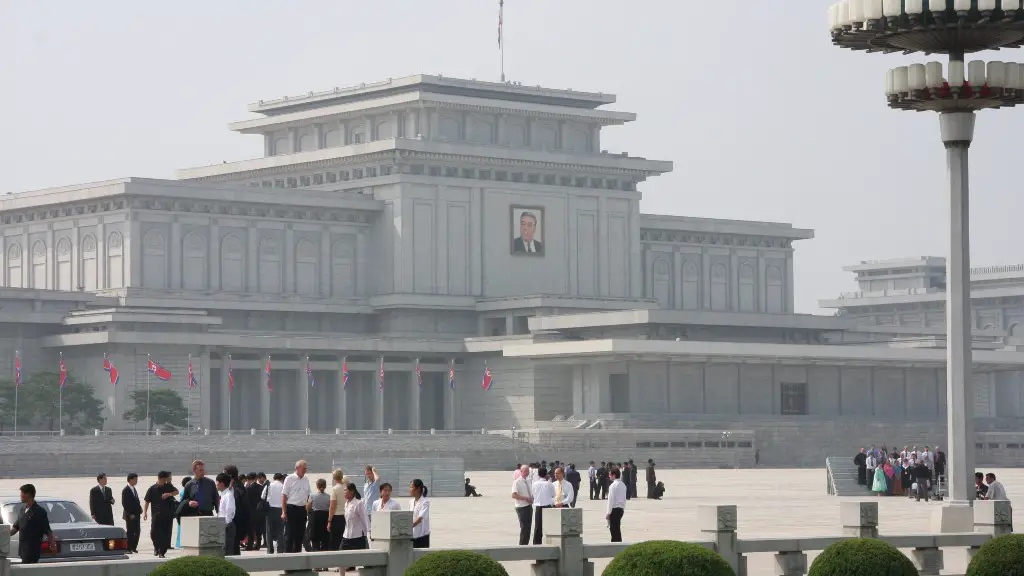When it comes to North Korea, there’s one question that looms large: Who holds the power? Kim Jong Un, the supreme leader of North Korea, is often thought of as the ruler of the country, but in fact his power does not go unchallenged. In reality, there’s a complex web of political players who hold the true power in North Korea.
North Korea is officially a one-party state, led by the Worker’s Party of Korea, or WKP. The WKP is officially the sole legitimate political party in the country, and many of its members are responsible for setting policy. All members share a common vision and goal of preserving the existing social and political system.
The real power behind the scenes, however, is the National Defence Commission. The NDC is comprised of a handful of trusted senior advisors and members of the military, who are now closely aligned with the Kim Jong Un regime. They are responsible for the security of the country, and have a decisive say in all matters of national security.
Another powerful entity that influences policy in North Korea is the military. The North Korean armed forces have grown increasingly powerful in recent years, and their influence extends to military, political, and economic decisions. The military’s top-down structure and its importance to the country’s security make it a major source of power.
In addition to the above, the media also plays an important role in North Korea. The state-controlled media propagates official government policy, and shapes the views of the public. Its influence has been described as “soft power,” as it often coerces the population into follower by means of persuasion rather than violence.
Finally, the economy is a major source of power in North Korea. Although the nation is sanctioned heavily by the international community for its repressive policies, the country’s economy has grown steadily in recent years. This has allowed the regime to increase its influence, both domestically and internationally.
Foreign Influences
Foreign countries also have an impact on the power structure in North Korea. The most significant foreign influence, however, is China. China is North Korea’s closest ally, and Beijing’s support has been pivotal in maintaining stability in the region despite international sanctions. China has also been a key supplier of aid and financial support to North Korea in recent years.
Russia has also had close ties with North Korea since the Soviet era, and is a major economic and political partner. Moscow supports Pyongyang’s nuclear program and opposes international sanctions, citing its commitment to Korean reunification. However, the influence of both China and Russia is waning in recent years, as the US and South Korea have become increasingly powerful players in the region.
The United States is also a major player in the power structure of North Korea. US-North Korea relations have been heavily strained in recent years, due to Washington’s hardline stance on Pyongyang’s nuclear weapons program. However, the US is still the most powerful external force in the region, and its relationship with North Korea has a direct impact on the balance of power in the region.
Finally, South Korea is an important player in the power structure of North Korea. Seoul’s influential presence in the region has been instrumental in the peace process in recent years, and its economic investment has been crucial in stabilizing the region. Along with the US, South Korea is one of the most powerful external forces in the region.
Domestic Influences
In addition to the foreign influences, North Korea also has strong domestic power structures. The Kim family dynasty has been the ruling family in North Korea since the 1950s, and Kim Jong Un’s leadership has been described as autocratic. His regime has been accused of human rights violations and repression of personal freedoms, but there’s little evidence to suggest that these policies have weakened the ruling power structure.
The roles of the National Defence Commission and the military are particularly important in terms of domestic power. Both of these entities have significant influence and control over the government and its policies. They are also seen as integral to maintaining stability, as they can be mobilised to respond to domestic or external threats.
The Worker’s Party of Korea, or WKP, is also a major source of power in North Korea. The WKP is responsible for setting policy and ensuring that it is implemented. This therefore gives the party significant power and influence in all domestic matters.
Finally, the media is another domestic source of power in North Korea. As mentioned earlier, the media plays a major role in shaping public opinion and influencing individuals and groups to adhere to the policies and views of the state. This makes it a critical part of the power structure.
Conclusion
In conclusion, North Korea is a country with a complex power structure. Most people focus on Kim Jong Un, the supreme leader of North Korea, but in reality his power is tempered by a number of other powerful players. The National Defence Commission, the military, the media, and foreign countries all have a significant impact on the power structure of the country.
Impact of Sanctions
Sanctions imposed on North Korea by the international community have had an impact on the country’s power structure. Sanctions restrict North Korea’s access to foreign currency and goods, which has had a negative effect on the country’s economy. This in turn has weakened the regime’s hold on power, as the public has been increasingly dissatisfied with the economic situation.
Sanctions have also had a negative impact on the military, as they have hampered the regime’s ability to fund and maintain its military operations. This has weakened the military’s influence in the country, as it has been unable to compete with the other sources of power.
Sanctions have also had an effect on the International relations between North Korea and other countries. Relations with China and Russia have been negatively impacted, as these countries have had to scale back their support for North Korea due to the sanctions. As a result, these countries have lost some of their influence in the country.
Finally, sanctions have also weakened the media’s influence in North Korea. Sanctions have restricted North Korea’s access to foreign media, making it more difficult for the regime to propagate its message and control public opinion. This has led to a decrease in the media’s influence in the region.
Corruption & Transparency
Corruption is another factor that has had an impact on the power structure in North Korea. The regime has been accused of widespread corruption and bribery, and this has weakened its hold on power. Corrupt officials have taken advantage of their positions for personal gain, and this has eroded the public’s trust in the government.
In addition, lack of transparency in North Korea’s government has contributed to the weakening of the power structure. The lack of information available to the public has made it difficult for them to make informed decisions, and has led to mistrust of the regime. This has reduced the public’s support for the government, and has weakened its power.
Finally, North Korea’s reliance on foreign aid has further weakened the government’s power. The government has become increasingly reliant on foreign countries for economic and political support, which has led to a loss of sovereignty and control over the country. This has weakened the regime’s hold on power, as it lacks the internal means to remain independent and autonomous.
Future of North Korea
It is unclear how the power structure in North Korea will develop in the future. Kim Jong Un’s autocratic rule has been met with widespread criticism, and it remains to be seen whether his regime will be able to maintain its power in the face of growing external and internal pressures. The international sanctions, corruption, and lack of transparency have weakened the regime’s power, and it is uncertain if it will be able to survive in the long term.
It is possible that the power structure may shift dramatically in the future. A sudden regime change or a collapse of the government could result in a new power structure, and it is difficult to predict what this would look like. It is likely that the military and the foreign players would still have a significant influence, but it is impossible to predict how this would play out in the long term.
Ultimately, the future of North Korea’s power structure is uncertain. It is clear, however, that there are many factors that influence the balance of power in the country, and that there is no single individual or entity that has absolute power.





